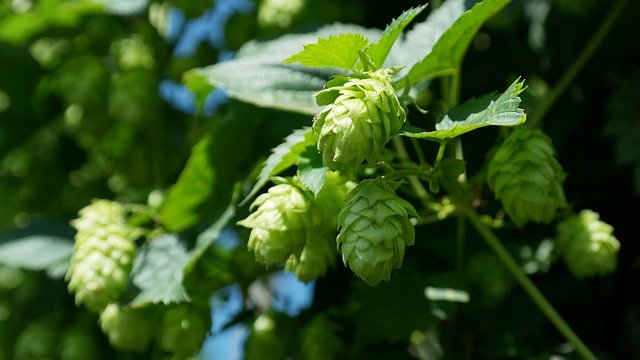 Humulus lupulus is a flowering plant that belongs to the Cannabaceae or hops (hemp) family of plant. It is a perennial climbing vine that grows rapidly. The plant grows wild all over Europe, Asia and North America, where it has been used as a traditional sedative treatment for a number of ailments including mania, toothache, earache and neuralgia. Evidence suggests that hops possesses anxiolytic effects in humans and animals. For example, in rats, one study compared extracts of hops with the pharmaceutical anxiolytic drug diazepam for its sedative, anxiolytic and pre-anaesthetic effects. In all three of these parameters, the hops extract was significantly more effective when compared to diazepam. It is unclear how hops exerts these effects, but some studies have suggested that α-bitter acids (cohumulone, humulone and adhumulone) and β-bitter acids (colupulone, lupulone and adlupulone) in the plant may cause physiological changes in the brain that causes sedation, anxiolytic and pre-anaesthetic effects.
Humulus lupulus is a flowering plant that belongs to the Cannabaceae or hops (hemp) family of plant. It is a perennial climbing vine that grows rapidly. The plant grows wild all over Europe, Asia and North America, where it has been used as a traditional sedative treatment for a number of ailments including mania, toothache, earache and neuralgia. Evidence suggests that hops possesses anxiolytic effects in humans and animals. For example, in rats, one study compared extracts of hops with the pharmaceutical anxiolytic drug diazepam for its sedative, anxiolytic and pre-anaesthetic effects. In all three of these parameters, the hops extract was significantly more effective when compared to diazepam. It is unclear how hops exerts these effects, but some studies have suggested that α-bitter acids (cohumulone, humulone and adhumulone) and β-bitter acids (colupulone, lupulone and adlupulone) in the plant may cause physiological changes in the brain that causes sedation, anxiolytic and pre-anaesthetic effects.

As well as α-bitter and β-bitter acids, hops (Humulus lupulus) contains flavonoid antioxidants that may contribute towards its anxiolytic effects.
Eat Well, Stay Healthy, Protect Yourself
RdB
